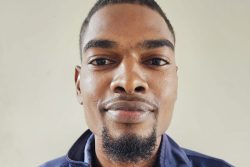Following a 3-2 vote by commissioners of the Guyana Elections Commission (GECOM), Chairman Dr Steve Surujbally yesterday announced that a new round of Claims and Objections will be held to facilitate the registration of persons who were previously unable to register.
Addressing a highly-anticipated news conference at the Commission’s Kingston, office, Surujbally said that the proposed date for the reopening of the exercise is July 25, 2011. It would last 13 days, with the Claims aspect running for 10 days.
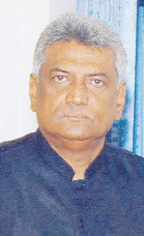
The decision to reopen the exercise was made yesterday at a Special Statutory Commission Meeting that had been called. At this meeting, two government-nominated members of the commission, Dr Keshav Mangal and Mahmood Shaw, along with one opposition-nominated member, Robert Williams, voted to hold the new exercise. The two other opposition-nominated members, Vincent Alexander and Charles Corbin, were against it. Moen McDoom, the other government-nominated commissioner, was not present for the vote. Alexander warned yesterday that the decision could end up paving the way for an election postponement.
Surujbally, however, said elections could be held in November, well before the constitutional deadline of December 28, 2011.
Although GECOM had previously ruled out extending the last Claims and Objections exercise, which ended on June 9th, a government-nominated commissioner requested that the issue be reviewed, based on the argument that some persons previously without access to source documents for registration had since acquired them, and that the process would not jeopardise the date for elections.
“Considering political parties’ original requests and the number of persons who are now in a position to apply for registration and the fact that they are no constraints associated with timelines or the law and with the availability of finances, it was felt that the Commission must be guided by the relevant constitutional provisions, the rights of citizens to be registered and be given their constitutional right to vote,” Surujbally said. “This must be the overriding consideration within the present context,” he added.
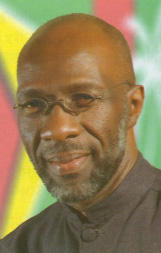
He explained that the new exercise will be conducted countrywide and will involve the re-establishing of temporary offices, rehiring temporary staff, deploying mobile registration units to hinterland and riverain communities, accrediting scrutineers to monitor the registration process and advertising the exercise in all available media.
“At the end of the day, everyone wins: GECOM wins; the political parties, the electors and the nation in general win [and] democracy wins,” Surujbally said.
The Chairman, while responding to a question, said it was projected that some 2,237 persons were not in possession of source documents at the end of the last Claims and Objections period. He said, though, that the figure is likely to be more than this now.
Chief Election Officer Gocool Boodoo said that the reopening of the exercise will pose some challenges. “We are going to work. There are going to be challenges. One of the major hurdles would be financing and the government has committed that advances will be made from the Consolidated Fund to meet the additional expenditure,” he said. However, neither he nor Surujbally was able to say how much the new exercise would cost taxpayers.
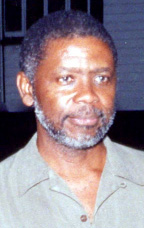
“I would prefer us to register 3,000 [to] 4000 persons more than to go into an election and for people to say look we’re disenfranchised. We have lived through that [and] we do not want that to happen again,” he said. An amendment will have to be made to the National Registration Act in order to facilitate the reopening of the exercise.
Williams, in explaining his decision to vote for a new exercise, said it was made on four conditions: that it would not affect the election being held by the constitutional deadline; that it would allow those off the final voters’ list an opportunity to get on; the availability of funds; and that the legal requirements would be dealt with in parliament. Williams later appeared to be unwell and at the end of the press conference had to be assisted out of the compound.
Explaining why he dissented, Alexander pointed to the fact that the Commission had previously not responded positively to a request of all of the opposition parties to extend claims and objections. “When it came to the point of request by the party in government, all of the opposition parties did not agree to that extension because they thought it should have been done before claims and objections came to an end and so, really, I found it difficult in the absence of a consensus among the political parties to support an opening of Claims and Objections,” he said. He also pointed to the fact that the public had since 2008 to register and they could not claim that GECOM caused them to be disenfranchised.
“If by chance there was any difficulty, the difficulty had to do with the inability, inadequacy…of the Ministry of Home Affairs to provide an opportunity for those persons to acquire their documents in a timely manner,” Alexander said. He said too that when it came to the point of discussing the reopening, there was no new evidence presented to the Commission from the time the initial decision was made not to extend the Claims and Objection period.
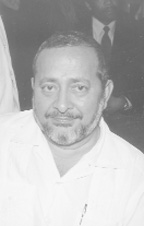
Alexander noted that there are “tremendous bureaucratic hurdles to be crossed in realising the elections in a timely manner” and said that the decision may result in the election being postponed. He noted that one area of concern is the timely release of funds by the Ministry of Finance, noting that the Commission is still indebted $40M for previous expenses.
Corbin, meanwhile, expressed concern that the decision made by the Commission could lead to a dangerous precedent and pointed to the Commission’s indebtedness to suppliers. “More funds will be made available for an exercise, which in my view there is no statistical evidence to support. But more funds are being committed while we still have debts to meet. More significantly, however, the basis of the decision that has been made, implicit in it, is the probability that it can become cyclical,” he added.
“The basis for this decision, if it is found at the close of this exercise there are a number of persons who have source documents, the basis of this decision suggests that we can again re-open the exercise for it to occur. If that position is enshrined in law, then it poses a difficulty for the Commission to conduct its work within the appropriate time frames,” he said.
Corbin echoed Alexander’s concerns that there were several issues that are outside of GECOM’s control that would impact on the timeframes. He pointed to the fingerprint cross-matching exercise and noted that for the past exercise the Commission is yet to receive a response from the service supplier. He pointed to the fact that an even shorter timeframe for a response has been identified for the reopened Claims and Objection period.
Shaw, meanwhile, said that when the Commission had decided initially not to extend the exercise, no political party had requested such an extension. “All they asked GECOM to do was to see what they can do to accommodate the people,” he said. “Yes we voted not to extend at the time, eventually we reconsidered and it is not the first time that a Commission reviewed a decision made and changed that decision,” he explained.
The PPP had recently written to GECOM asking that it reopen the Claims and Objection period to facilitate the approximately 5,000 to 7,000 eligible voters not on the list. The PPP’s presidential candidate and General Secretary Donald Ramotar had said that many eligible voters were unable to get on the list because of the late issuance of source documents.
The opposition APNU and the AFC have both objected to the reopening of the claims and objections period, questioning the timing of the move, while expressing concern about its implications for the voters’ list and the poll date.









